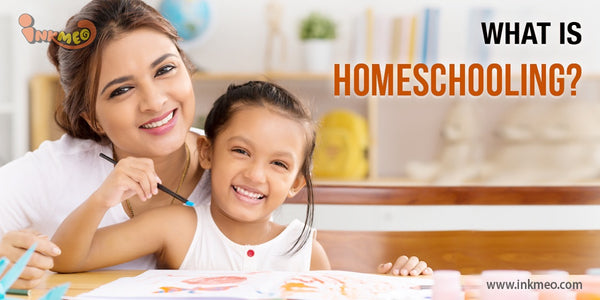Homeschooling is the education of children inside the home. It is usually conducted by a parent or tutor. Many families use less formal ways of educating. Homeschooling is commonly called as "home education" or unschooling.

Indian Educationists feel that home-schooling is the future of education considering the changing trends but it might hamper the social development of a child. Sensible parents search for the school, based on their level of teaching, methods of learning, creative freedom, personal attention to every child and safety measures rather than just a status symbol. Considering the recent untoward incidents in schools, parents feel spending extra hours and educating their children at home would ensure a safer environment for the kids.
How can I start homeschooling with my Kid?
Before starting homeschooling for your kids, follow few steps given below.
1. Research homeschooling:
Homeschooling is best suited for stay-at-home moms. Others can assign the Grandmom or other relatives who can take care of the kid. Do your homework and ascertain what it involves in terms of time, money, patience and effort. Homeschooling needs the support of both parents. Search the internet and talk to parents who homeschool their children.
2. Join a homeschooling group on the Facebook:
You could sign up as a member on various online portals such as homeschoolers.in or a support group for parents homeschooling children in India or your locality on Facebook. Here you’ll be able to interact with parents and get answers to your questions, know their at-home teaching experience, and learn how homeschooling works for them.
3. Choose a Syllabus:
Parents can choose to follow any examination board curriculum (ICSE, CBSE, Cambridge International Examinations or The National Institute of Open School). Also, ensure that the selected boards are allowing candidate appearing for the exams privately. If you choose a set curriculum, you have to use the prescribed textbooks. However, most homeschooling parents adopt a more liberal approach, preferring an eclectic mix of curriculums and pedagogies. The better way is to just let children choose what they want to learn, without structured timetables or course material.
4. Set specific goals:
Homeschooling shouldn’t become a permanent holiday for your kids. It is important to set academic planner and goals. Make a plan and set a timetable to meet the goals you’ve outlined. Break down the academic schedule and each subject into the lessons for week by week. But remember that flexibility is one of the key appeals of homeschooling. So you must always adapt the schedule to your children’s changing needs.
5. Create a schooling space:
As a homeschooler, you need to designate an area in your home where knowledge is to be acquired. It could be the living room, a balcony or study room. Equip this area with teaching aids like a blackboard, calendars, bookshelves, lesson planners, books, computer with internet connectivity, etc.
6. Organize social and extra-curricular activities:
Homeschooled children also need to interact with their peers for improving their social skills. Organise a playgroup or depending on your child’s interests you can enrol them in art, yoga, music, dance or sports workshops.
Are you ready for homeschooling?
Try engaging your kids in some activity book or worksheets. Start teach them colouring activities with a colouring book or Inkmeo wall colouring rolls and find out how well they are following your instructions and learning.


2 comments
As mentioned in the post you should choose a board which accepts private candidates to write the examination. Join the Facebook groups like this one -
https://www.facebook.com/groups/145186648828047/
All the best.
I liked ur page a lot but still confused how to appear them for examinations n future competitive